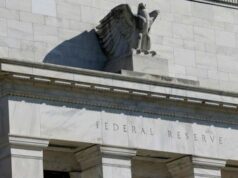Fitch: Tax take key to hike in debt rating
By Melissa Luz T. Lopez
Senior Reporter
A SUSTAINED rise in tax collections may trigger a debt rating upgrade for the Philippines, an analyst at Fitch Ratings said, noting that last year’s budget deficit will not affect the country’s credit outlook for now.
Sagarika Chandra, associate director at Fitch, said the global debt watcher is not concerned about 2018’s wider-than-programmed fiscal deficit.
“We think continued reforms aimed at raising the tax ratio even as infrastructure spending increases are important to maintain fiscal stability,” Ms. Chandra said in an e-mailed reply to questions.
“One of the factors which we think could lead to a positive rating action is a sustained broadening of the government’s revenue base that enhances fiscal finances.”
In December, Fitch kept the Philippines at “BBB,” a notch above minimum investment grade, with a “stable” outlook.
The credit rater awarded an upgrade in 2017 right after Congress approved the Tax Reform for Acceleration and Inclusion (TRAIN) law.
The government last week reported a P558.3-billion fiscal deficit for 2018, substantially bigger than the P350.6-billion shortfall in 2017 and piercing the P523.7-billion program for the entire year. That placed the shortfall at an equivalent of 3.2% of gross domestic product, higher than the three percent deficit ceiling set for the year.
State disbursements totaled P3.408 trillion, exceeding the P3.37-trillion target for the year and 20.7% more than the P2.824 trillion spent in 2017, while revenues amounted to P2.85 trillion, slightly bigger than 2018’s P2.846-trillion goal.
“The small fiscal slippage does not have a near-term impact on the sovereign rating or outlook. We expect government debt to remain manageable at around 37% of GDP through 2020,” Ms. Chandra added.
“However, should the deficit overruns persist and be accompanied by macro instability, that could be negative for the rating over the medium term.”
The Bureau of Internal Revenue missed its P2.074-trillion collection target by six percent, but higher collections by other state agencies drove the overall revenue effort to 16.4%, the highest ratio since 2007.
Another global credit rater, Moody’s Investors Service, has said that the current fiscal deficit is manageable as the Philippines remains on solid footing.
Global debt watchers have been cognizant of the robust growth momentum of the country, but noted that the local revenue base is too shallow compared to those of similarly rated economies.
The Bureau of Internal Revenue is tasked to raise P2.331 trillion this year, 20% more than the P1.952 trillion it collected in 2018. Of this amount, P79.012 billion will come from TRAIN collections.
HIGHER TAXES
The Department of Finance (DoF) is also lobbying to further raise taxes on cigarettes, saying that doing so could push over three million Filipinos to quit smoking and collect P30.1 billion in additional revenues besides.
In a statement, the DoF said cigarette consumption could go down by as much as 16.8% should Senate Bill No. 1599, which raises taxes to P60 per pack in the first year of implementation from P35 currently and increases the tax by nine percent per year thereafter, be enacted.
DoF simulations also showed that a tax hike to up to P73 per pack will not unduly affect collections.
Citing simulations done by the Department of Health (DoH) and the World Health Organization, Senate Bill No. 1599 proposing an across-the-board increase in excise taxes on cigarettes will likely prompt “the youth, the poor and other price-sensitive cigarette users to stop smoking,” according to DoF Undersecretary Karl Kendrick T. Chua.
The TRAIN law raised the excise tax on cigarettes to P35 per pack on July 1, 2018. This will rise to P40 by January 2022.
It also provides for a four percent yearly increase in taxes by 2024.
Cigarettes are also subject to the 12% value-added tax.
DoF and DoH officials made the case before the Senate Committee on Ways and Means, with Health Secretary Francisco T. Duque III noting that higher cigarette prices could avert around 713,000 deaths.
The additional taxes will also fund the state’s universal health care program, which is seen to cost about P40 billion.
The House of Representatives has already approved a measure that would raise the excise duties for tobacco as well as alcoholic drinks, but the rates are lower than what the DoF is asking for. Mr. Chua added that the tax gap between the House and Senate versions would reach as much as P244 billion by 2022.
The Senate is yet to take up the tobacco tax bill in plenary for second and third readings, with only May 20-June 7 left for formal sessions of the 17th Congress.



